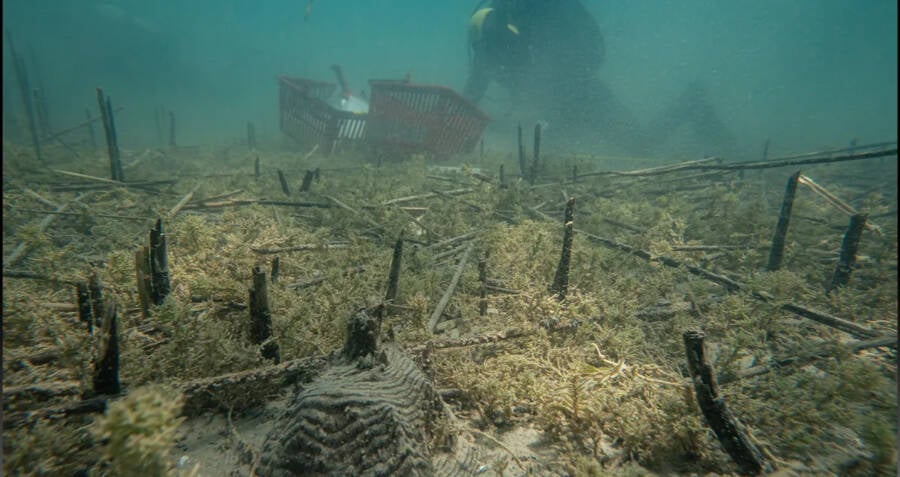
“The best intelligence is the intelligence that is used.”
Intelligence Fun Fact:
Safeguarding Security through Classification

Have you ever wondered how classified information makes its way into the public domain? It's a long and complicated process, but it's essential to balancing national security interests with the public's right to know.
Here are the basic steps involved in declassifying sensitive material:
Classification: Information is classified at one of three levels: Top Secret, Secret, or Confidential. This designation determines who can access the information and how it must be protected.
Review and assessment: Before declassification, information is reviewed by experts to assess its sensitivity and potential risks. This helps to ensure that only information that is no longer considered to be a threat to national security is released to the public.
Balancing national security and public interest: The decision of whether or not to declassify information is a delicate balancing act. On the one hand, the public has a right to know about its government's activities. On the other hand, there are some types of information that could harm national security if it were released.
The Freedom of Information Act (FOIA): FOIA allows citizens and organizations to request the release of government documents. This can be a powerful tool for ensuring transparency and accountability.
Interagency consultation: For information that involves multiple agencies or departments, the U.S. government consults with all stakeholders before making a decision about declassification. This helps to ensure that everyone's interests are considered and that the decision is made in a fair and objective way.
Redaction: Once a decision has been made to declassify information, it may need to be redacted to protect sensitive details. This can involve blacking out or otherwise obscuring sensitive information.
Release: Once the information has been redacted, it can be released to the public. This may be done through online repositories or government archives.
Time-triggered declassification: Some information is automatically declassified after a certain period of time. This helps to ensure that sensitive information becomes accessible as its relevance diminishes over time.
The declassification process is a complex and nuanced one. This process, however, is essential to protecting national security while also upholding the public's right to know. By carefully balancing these two competing interests, the government can ensure that classified information is only released when it is safe to do so.
The next time you come across a declassified document or piece of information, remember that its release was a carefully considered decision. The goal is always to keep both the nation and its citizens safe.
Stay informed, stay curious, and stay safe out there.
Challenges and Prospects for the Wagner Group in the Post-Prigozhin Era

The death of Yevgeny Prigozhin, the driving force behind the Wagner paramilitary group, has sparked conversations concerning the group's future dynamics. Despite Prigozhin's absence, expectations are that the Wagner group will persist, possibly adopting a new identity. Its decentralized command structure grants it adaptability, meaning its activities in Africa and Syria could endure.
The identity of the forthcoming leader remains uncertain, though indications point toward a figure connected with Russian military intelligence. Wagner's troops stationed in Belarus and Ukraine are unlikely to be substantially impacted by Prigozhin's demise, given their demonstrated capacity for autonomous operations.
The challenge for the Wagner group moving forward lies in securing alternative funding without challenging the authority of the Putin administration. This transition period holds implications for the group's global activities, with potential factional splits and the broader interplay between Russian intelligence and foreign policy.
Analyst Comments:
The group's evolution might open avenues for diversified activities aligned with Moscow's strategic interests beyond its current theaters. The group could be used to support Russian interests in Africa or Latin America. The group's adaptability and resilience make it a versatile tool that the Russian government can use to achieve its strategic goals.
The uncertainty surrounding the Wagner Group's successor is a major concern for Western governments. Close monitoring of candidates tied to Russia's military intelligence is essential to ensuring that the Wagner Group does not become another puppet of Putin’s administration. The group's capabilities and resources make it a valuable asset to the Russian government, and it is important to prevent it from being used for malicious purposes.
Challenges of securing funding post-Prigozhin require a balance between financial sustainability and maintaining a discreet profile. The Wagner Group could seek funding from private individuals or organizations, but this could be difficult to do without attracting attention from Western governments. The group is closely aligned with the Russian government, and it is often used to advance Russia's foreign policy goals. The group's ability to operate autonomously will be tested as it seeks new sources of funding. This could offer challenges operating in countries where it is not welcome or where there is a risk of legal prosecution.
Declassified US Intel: Russia's Covert Propaganda Channels via Unwitting Westerners

The recent declassification of US intelligence findings has unveiled a complex web of Russian influence operations. These operations are designed to filter pro-Kremlin propaganda through unsuspecting Western individuals. These covert campaigns strategically exploit personal relationships and trust. Thus presenting a facade of genuine discourse while effectively injecting Russian narratives into the Western media landscape.
The implications of these revelations are profound, shedding light on Russia's evolving information warfare tactics and its broader geopolitical objectives.
Analyst Comments:
The goal of Russia's disinformation campaign is to sow divisions and erode trust within Western societies. By doing this, Russia hopes to weaken collective responses to geopolitical challenges, such as the war in Ukraine.
Russia has long been known for its use of covert influence operations to achieve its foreign policy goals. In recent years, the country has stepped up its efforts to cultivate relationships with young leaders and seemingly independent entities in Western societies. The goal of Russia's long-term influence strategy is to gradually normalize pro-Kremlin sentiment within Western societies. This could lead to policy shifts that align with Moscow's interests, potentially chipping away at Western alliances and reshaping global power dynamics.
The Biden administration's proactive use of declassified intelligence signals a recognition of the evolving nature of modern conflict. This encompasses both traditional military actions and information warfare. By leveraging intelligence to expose Russian influence operations, the US aims to counter Moscow's narratives, thereby shaping international perceptions and potentially altering the geopolitical calculus.
Libyan Foreign Minister Suspended Amid Alleged Meeting with Israeli Counterpart

The suspension of Libya's Foreign Minister, Najla Mangoush, following her meeting with Israeli counterpart Eli Cohen has triggered a series of geopolitical implications. Libyan Prime Minister Abdul Hamid al-Dbeibeh initiated an investigative panel to probe Mangoush's involvement in the meeting. This led to her ensuing departure to Turkey.
This unexpected turn of events raises questions about the level of consultation between Israel and Libya, and the prospects for improved relations between the two countries. Historically, Libya has been one of the most vocal opponents of Israel. In recent years, however, there have been some signs of thawing relations between the two nations.
Analyst Comments:
The suspension of Mangoush highlights the precarious political landscape in Libya. The country's history of internal divisions and rival governments, coupled with its complex alliances and ongoing instability, magnifies the potential for diplomatic incidents to reverberate throughout the nation. The public backlash, as evident through protests and the burning of the Israeli flag, underscores the deeply rooted sentiments surrounding relations with Israel and the broader implications of diplomatic overtures.
Her suspension and subsequent departure to Turkey casts doubts on the feasibility of substantial progress in Israel-Libya relations. The differing narratives presented by the Libyan Foreign Ministry and Israel regarding the nature of the meeting suggest possible internal discord within Libya's leadership. This internal division could hinder any meaningful steps toward normalization and deter other officials from pursuing similar diplomatic initiatives.
Criticism by Libyan presidential candidate Suleiman al-Bayoudi reflects the divisive nature of engaging with Israel within Libya's political context. The accusation of promoting normalization with Israel as a strategic move to gain favor, coupled with allegations of internal power struggles, showcases the intricate dynamics within the country. The looming elections in Libya add another layer of complexity, where differing stances on Israel could further intensify political competition and shape the country's future direction.
Interesting Articles from the Weekend

Stay safe out there



